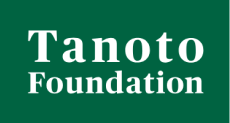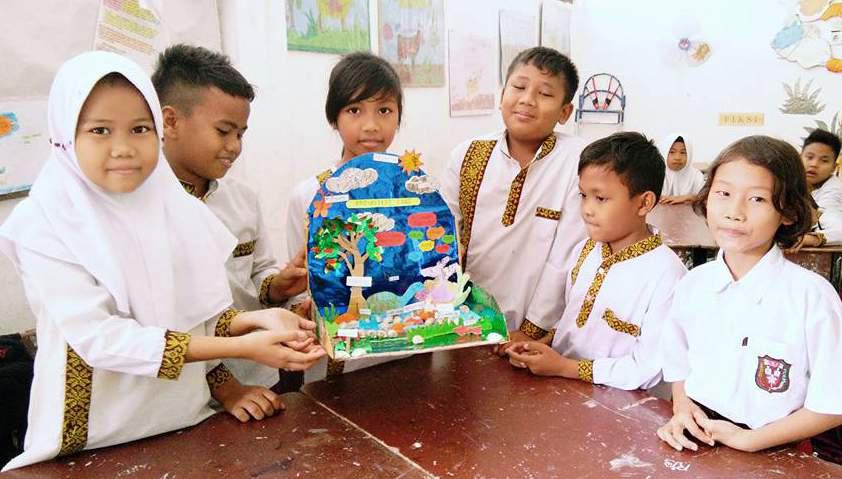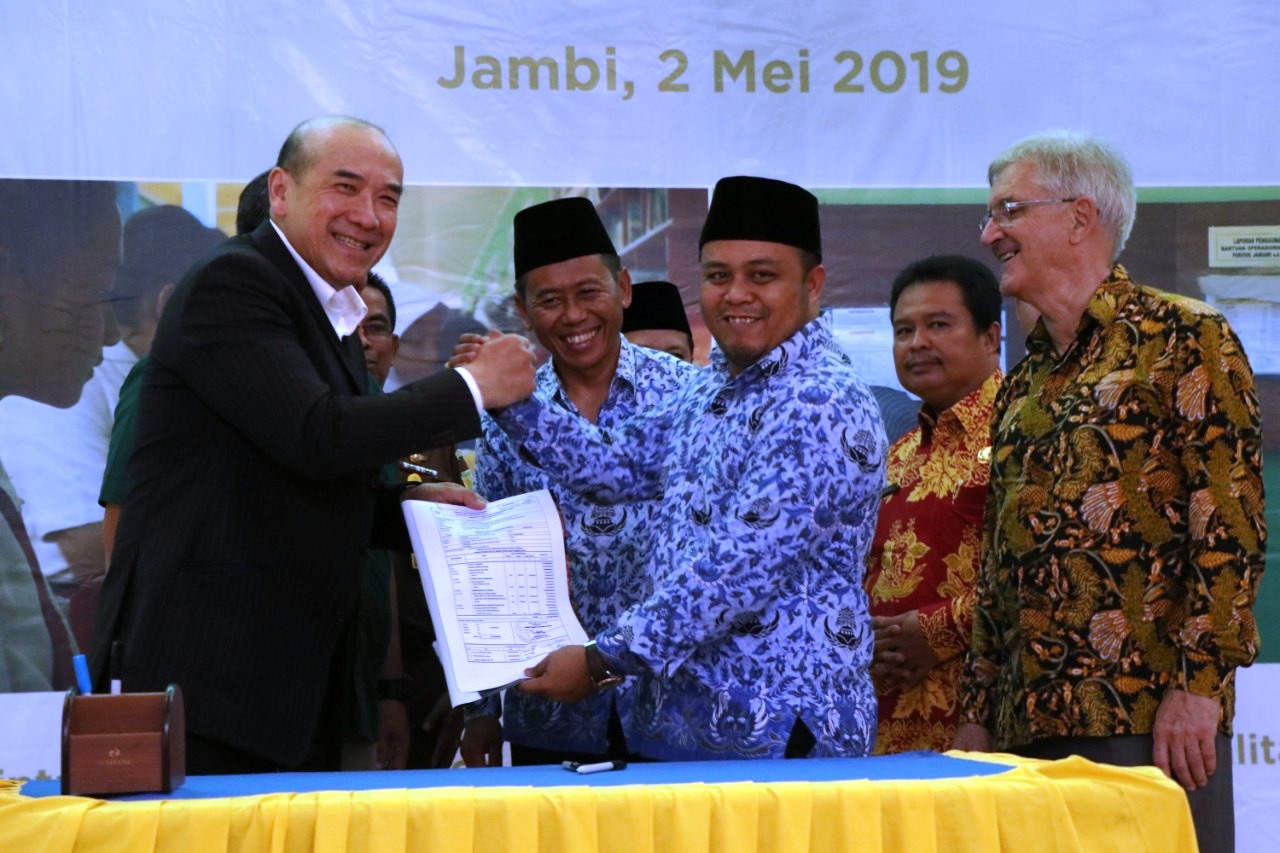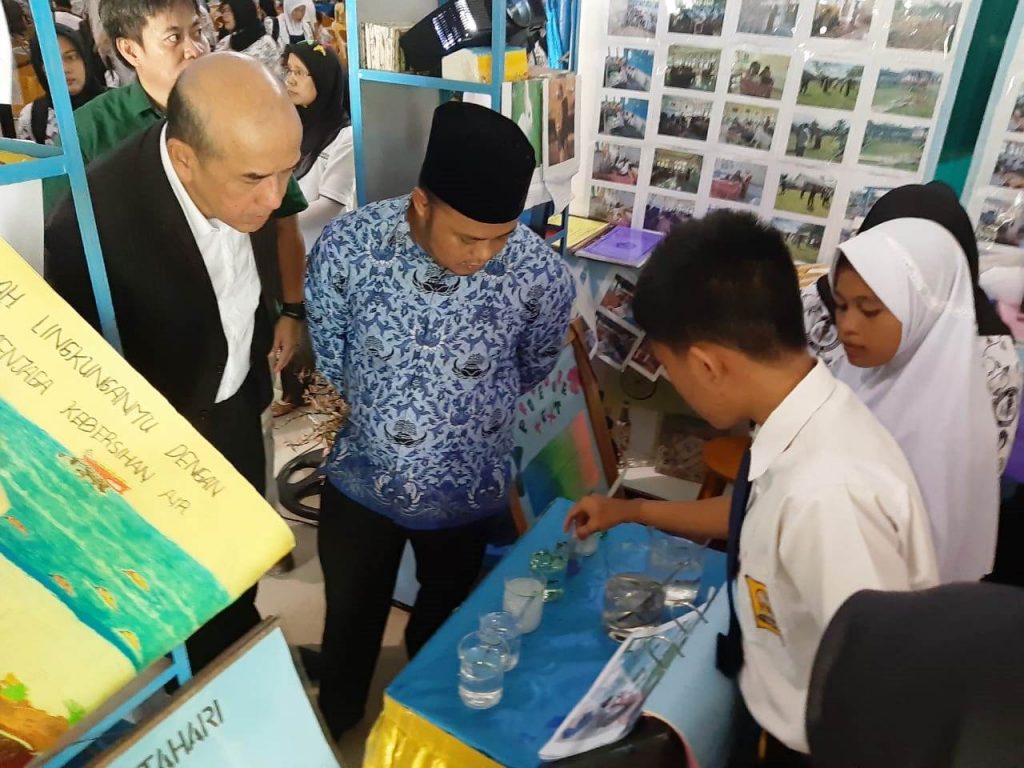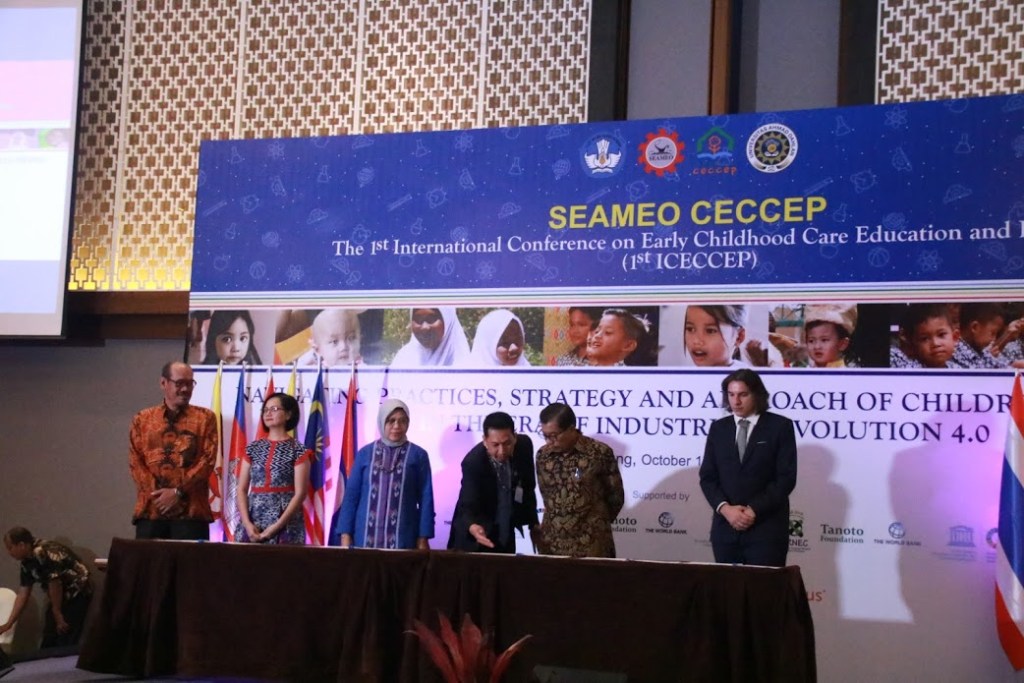As teachers, we are happy to see our students excited and earnest about attending lessons. That’s what I feel right now, as my students in the fifth grade of SDN 010156 Seri Muka in Batu Bara district, North Sumtra are attending lessons happily and enthusiastically.
The key to their enthusiasm is MIKiR (Experiencing, Observing, Interaction, Communication and Reflection) approach which I implement in the classroom. I learned about the MIKiR approach while attending a teacher quality improvement training session held by Tanoto Foundation in Batu Bara in October 2018.
MIKiR is an active and creative learning approach introduced by Tanoto Foundation through PINTAR, its education quality improvement program.
Since I implemented MIKiR, teaching and learning activities have been more enjoyable. Students are able to better understand their lessons, with facilitation by teachers.
Some time ago, I gave a lesson about natural ecosystems. To help my students learn better, I created dioramas of land and marine ecosystems – I got this idea through Tanoto Foundation training in 2012.
My students responded enthusiastically to the dioramas. They were also keen to take on the group task of observing their surroundings and using the information to then create their own dioramas.
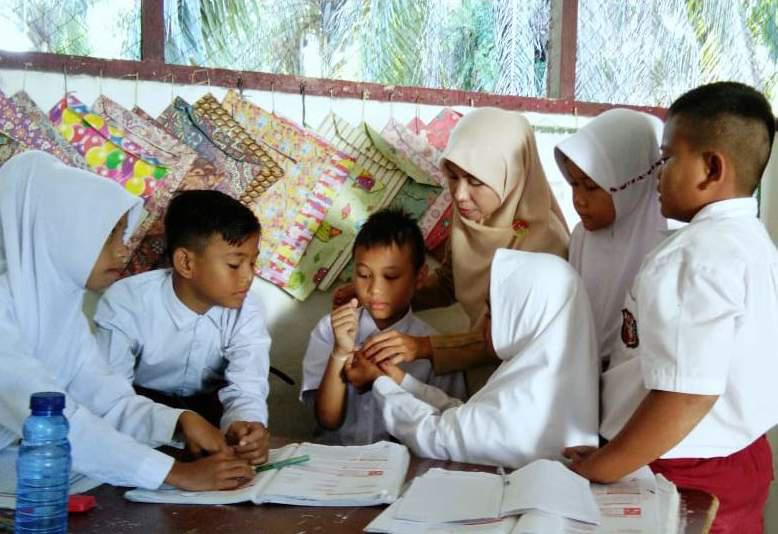
One of the groups made a diorama showcasing a marine ecosystem with various examples of sea creatures living in it, ranging from turtles to coral reefs. The group also brought in hermit crabs as live examples of marine creatures! Our school is near the beach, so the students were able to take this creative initiative.
This diorama activity incorporated all aspects of MIKiR. The students ‘experienced’ by observing land and marine ecosystems, and ‘interacted’ while working together to design their dioramas.
After finishing the diorama, the students presented the results of their work, thereby engaging in ‘communication’ among their groups. This presentation aspect helps to hone the students’ soft skills as it improves their confidence in conveying their ideas. The students also engaged in ‘reflection’ when they looked back on the knowledge they gained from the activity.
Some of the students talked about how there is a lot of plastic waste on the beach and how it is not good for the marine ecosystem. I helped them to understand the steps which can be taken to reduce this problem.
I think the MIKiR approach is really good for inspiring creativity not just in the students, but also in the teachers. This is because to implement MIKiR, teachers themselves have to come up with fun teaching and learning activities which incorporate all four aspects of the approach while getting the lessons across.
This article was written by Nurul Hasanah, fifth grade teacher at SDN 010156 Sei Muka, Talawi District, Batu Bara Regency, North Sumatra

